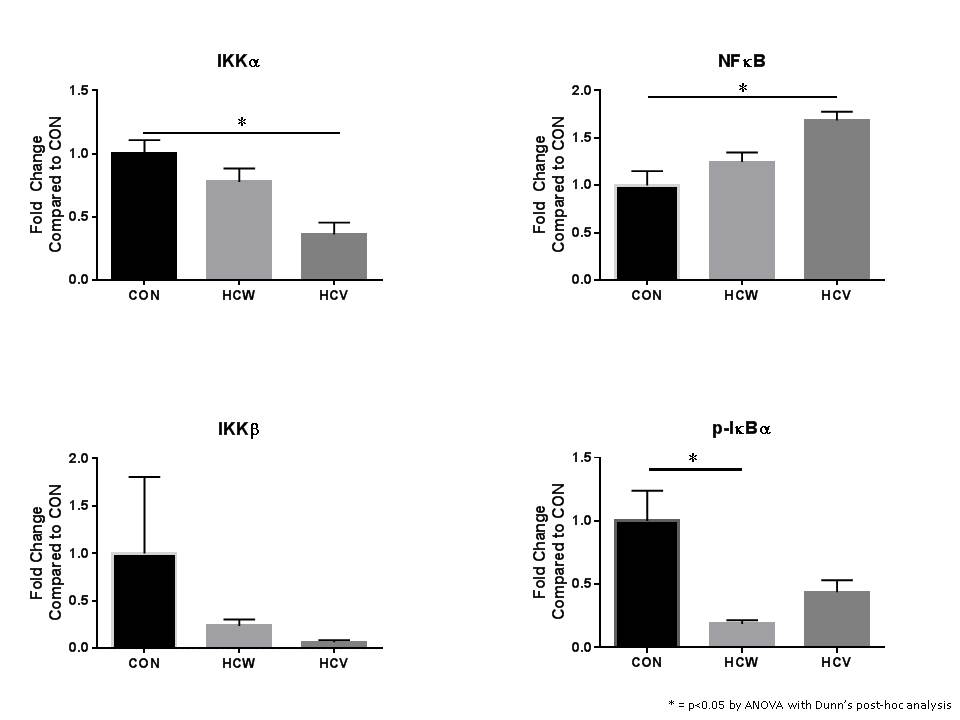L. A. Scrimgeour1, B. A. Potz1, F. W. Sellke1 1Brown University School Of Medicine,Cardiothoracic Surgery,Providence, RI, USA
Introduction:
Studies suggest low alcohol consumption can be cardioprotective but it remains unclear how this effect is modulated. The Nuclear Factor kappa-B (NFκB) pathway functions to regulate the expression of genes involved in a wide variety of cellular processes involved inflammation and stress. Therefore, we used a swine model of metabolic syndrome induced by a high fat diet to investigate the effects of red wine versus vodka on NFκB signaling in chronically ischemic myocardium.
Methods:
Yorkshire swine were given a high-fat diet for four weeks, and then an ameroid constrictor was placed on the left circumflex artery. They continued on the high fat diet and were subdivided into three groups with supplementation of wine or vodka for 7 weeks; hypercholesterolemic diet alone (CON, n=8), hypercholesterolemic diet with vodka (hypercholesterolemic vodka [HCV], n=8), and hypercholesterolemic diet with wine (hypercholesterolemic wine [HCW], n=8). Animals underwent euthanasia and ischemic myocardium was harvested for analysis. This tissue was analyzed via Western blot. Protein density data were normalized to GAPDH and reported as fold-change values +/- standard error of the mean compared to control (CON) samples.
Results:
Administration of alcohol was associated with decreased expression of IKKα, IKKB and and phosphorylated IκBα in the ischemic myocardium compared to the control group. Alcohol administration was associated with an increase in NFκB in the ischemic myocardium compared to the control group [Figure 1].
Conclusions:
In the setting of myocardial ischemia, alcohol appears to modulate the NFκB pathway. This was demonstrated by the decreased expression of IKKα after alcohol administration, which decreased phosphorylation of IκBα. When less IκBα is phosphorylated, it remains bound to and inhibits NFkB from passage into the nucleus and upregulating of a variety of genes. Many of these gene products further promote inflammation and contribute to the adaptive response of tissues such as the myocardium in response to the stress of ischemia. This study provides a mechanism by which alcohol may have a protective effect on the heart.
